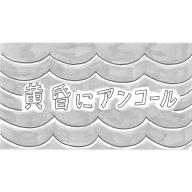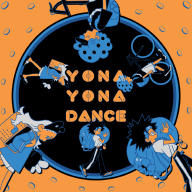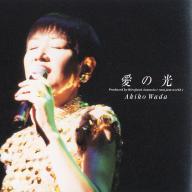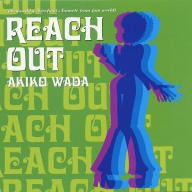Wada was born in a family of zainichi, ethnic Koreans living in Japan, in 1950, her birth name was Bok Ja Kim, or Kaneumi Fukuko in its Japanese version. Her heritage alone spelt trouble, as the zainichi were risking discrimination in the second half of the 20th century. Wada's roots did not become a subject for media speculation until 2005, and did not damage her career, but her family was still a handful -- her father was a drinker and a multiple divorcee who dabbled in sometimes-dubious business ventures. A tough environment and an unusual appearance -- she was over 160 cm tall in middle school -- did not prevent her from becoming interested in show business: by 14, she was in love with Ray Charles, and at 15, she run away from home to see the 1964 Tokyo Olympics and was dragged back to her enraged father by police. However, at 17, she was scouted by Takeo Hori, the founder of the Hori Pro agency, and debuted as Akiko Wada in 1968, taking her surname from her uncle. Her rise was swift -- her second single, Doshaburi no Ame no Naka De, topped the Oricon, and in 1972, she scored a Best Song Award at the Japan Record Awards with Ano Kane wo Narasu no wa Anata. Later, Wada confessed that she was bullied by other entertainers at the time, but this still was the beginning of a steady and versatile career -- she continued to release singles, starred in several movies (mostly in the early ‘70s), and became a staple of national television, appearing in a multitude of dramas and variety shows, one of which brought her the nickname God Nechan, or Big Sister God. She also hds her own show, #Akko ni Omakase ("Leave It to Akko"), which was launched in the mid-'80s. But the biggest testament to her role in Japanese show business is the fact that she is a regular on #Kouhaku Uta Gassen, the ultra-popular New Year musical TV show, on which she appeared 33 times from 1970 to 2009. Her first full-length, Only Yesterday, came out in 1988, and she had released ten albums by 2010, as well as 20 compilations. She has also shown she's capable of keeping up with the times by collaborating with the young R&B stars M-flo on the song Hey! off the single Loop on My Heart/Hey! (2005), which charted at number nine, as well as with the pop/R&B duo Skoop on Somebody in 2006. In 2008, Wada also became the first Japanese artist to play a solo show at the Apollo Theater in New York. She underwent polyp surgery in 2010. ~ Alexey Eremenko, Rovi
Akiko Wada
Biography
Akiko Wada was the opposite of everything Japanese audiences expected of its female pop stars in the '60 and '70s -- she was tall, loud, wore her hair short, had a huge stage presence, and did not hesitate to speak her mind in public. She took her fair share of flak for this, but it did not stop her from becoming a household name -- she is an actress, a comedian, a TV personality, and was dubbed "the Japanese Aretha Franklin" in the days before R&B went into fashion big time in the 2000s.
Top Tracks
Albums
Videos
Close












